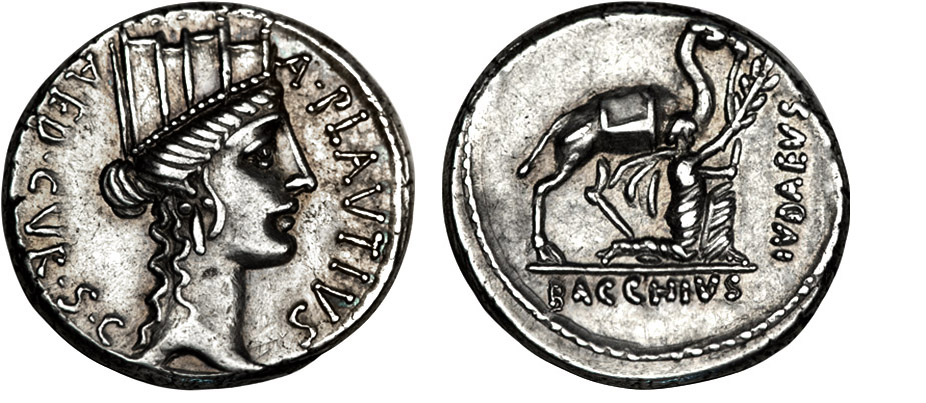Kairos and Venturo:
This Moment and the Time to Come:
Venturio may be read as Venturo, the time to come: However, the long front of his helmet and his winged boots remind me of the long forelock and winged feet/sandals of Kairos - also called 'Occassio', often confused with Fortuna, to whom she is related:

"This image is the work of Lysippus, whose home was Sicyon. - Who are you? - I am the moment of seized opportunity that governs all. - Why do you stand on points? - I am always whirling about. - Why do you have winged sandals on your feet? - The fickle breeze bears me in all directions. - Tell us, what is the reason for the sharp razor in your right hand? - This sign indicates that I am keener than any cutting edge. - Why is there a lock of hair on your brow? - So that I may be seized as I run towards you. - But come, tell us now, why ever is the back of your head bald? - So that if any person once lets me depart on my winged feet, I may not thereafter be caught by having my hair seized. It was for your sake, stranger, that the craftsman produced me with such art, and, so that I should warn all, it is an open portico that holds me." {Emblemata, Alciato}
In a Christian sense, the "time to come" [eone venturo] is ever present in an eschatological tension with "this moment" [eone kairos]
Incumbent in 'this moment' is the 'ever present' expectation of the 'time to come' -- the end of days in which Christ shall return to save the faithful from the "coming wrath" --
As St Paul writes in Thessalonians 1:
"7 As a result, you became an example to all the believers in Macedonia and Achaia. 8 For the word of the Lord rang out from you, not only in Macedonia and Achaia, but in every place that your faith in God has gone out. Therefore, we don’t need to say anything, 9 for they themselves report what kind of reception we had from you: how you turned to God from idols to serve the living and true God
10 and to wait for his Son from heaven, whom he raised from the dead—Jesus, who rescues us from the coming wrath."
The days of wrath of course, are typified by the Dragon (of Revelations): until that time, Daniel, in the time of Nebuchanesor, prophesised about the rise and fall (like the wheel of fortune) of several great secular powers who would work against God, great empires typified as tyrants, beasts under the sway of the dragon--
----------------------------------------------------------------------------------------------------------------
And the "Time" [kairos], as they say, "is near" --
So - Be Ready! ;)
























